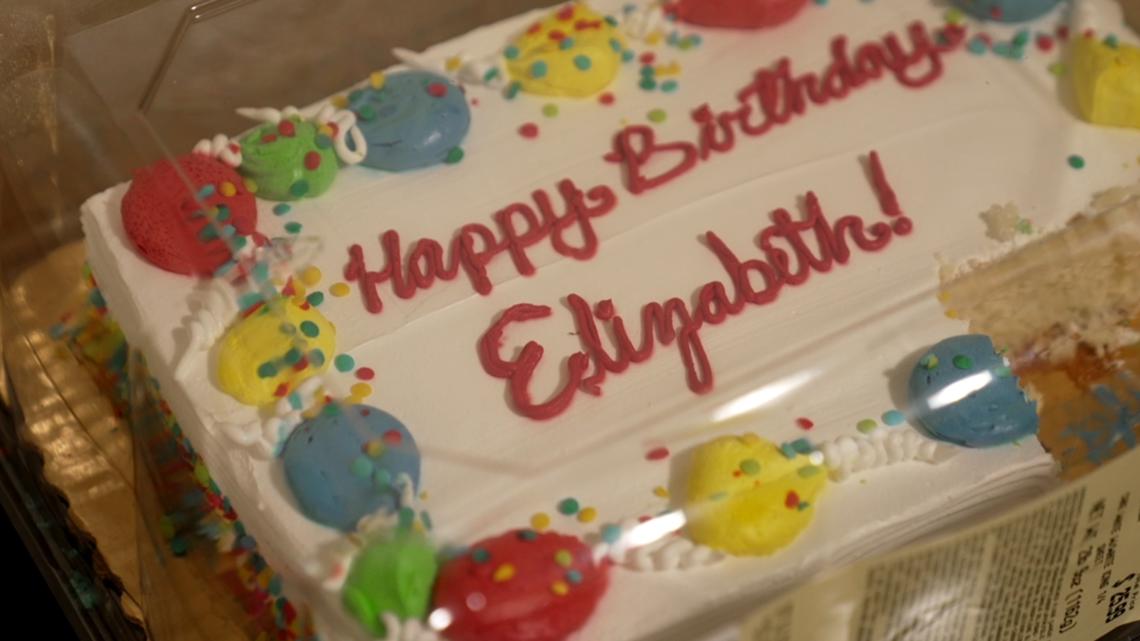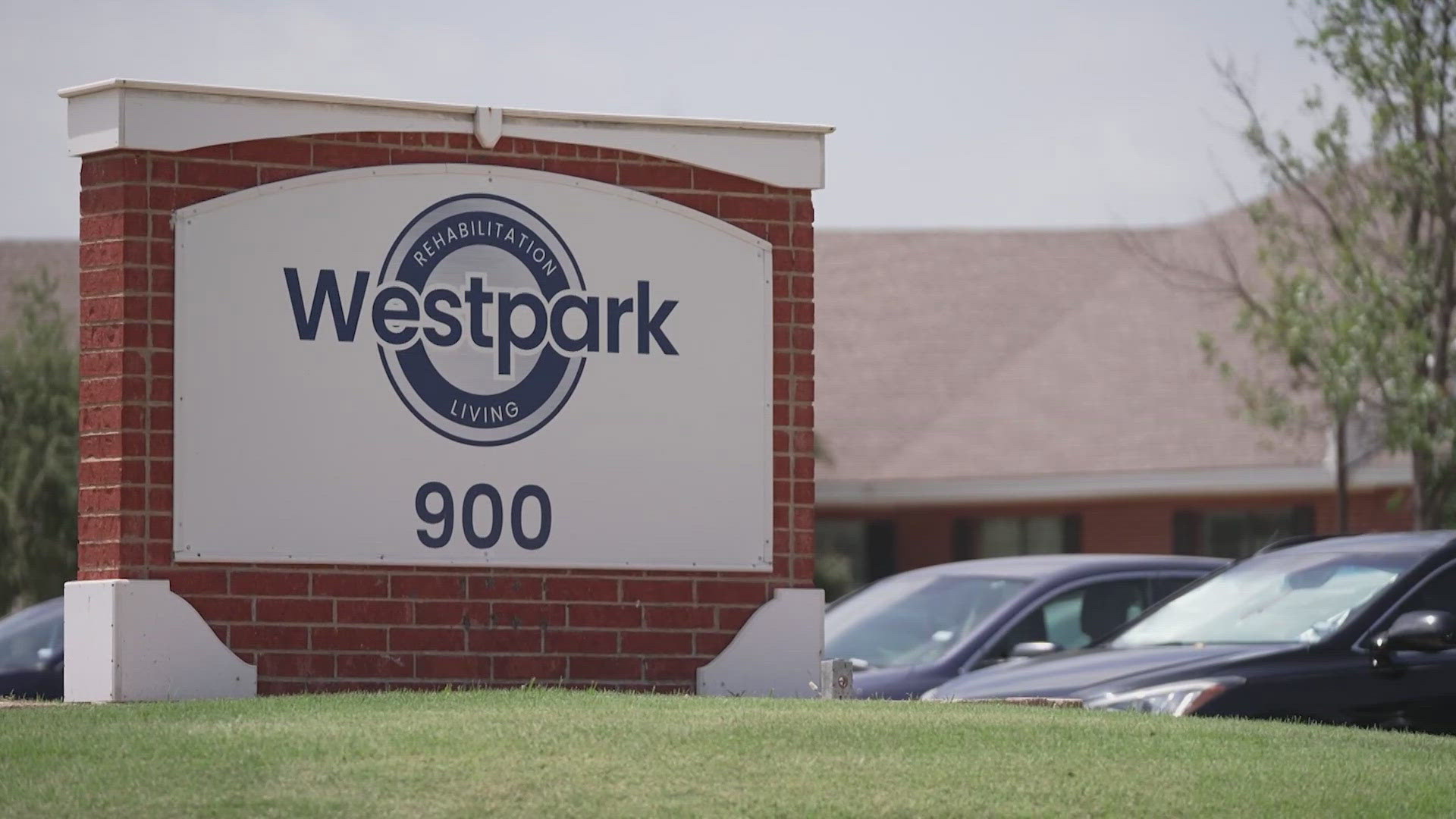EULESS, Texas — The family worried Elizabeth might be a target for predators.
She’s 46 with early onset dementia.
“She has the mental capacity of a two-year-old,” her former husband, Manuel, told WFAA.
Several months ago, the family placed a picture frame containing a hidden camera in Elizabeth’s room at Westpark Rehabilitation and Living Center in Euless.
In the frame, they placed an old picture of Manuel and their two children.
“Because she's young I knew that she would be a target,” Manuel said. I was hoping to be wrong, but turns out that I was right.”
Manuel’s daughter routinely monitored the footage from the camera.
On July 22, she saw what she believed to be a female nursing home employee sexually assaulting her mother the day before. She told her brother and father.
“She couldn't believe what she saw,” Manuel said.
Police have obtained an arrest warrant accusing that nursing home employee of aggravated sexual assault.
“This is like somebody victimized my two-year-old,” Manuel said. “I've watched it fully once. It's just too hard. It just enrages me.”
The nursing home did not respond to several requests for comment.
The family’s attorney provided the video to WFAA.
It shows the employee undressing Elizabeth and preparing to change her diaper.
“Stand up,” she tells Elizabeth. “Stand up.”
She walks her to the bed, puts her in it, and begins to change her.
What happens next is what police say was a sexual assault. It goes on for several minutes. Afterward, she puts the diaper on Elizabeth and covers her with a blanket.
“When you watch the video, there's really not much doubt,” said the family’s attorney, David Crowe. “It's one of the worst that we've seen.”
Manuel, a long-haul truck driver, said he was out of state when his children told him about the video. He drove to the nursing home in his truck.
He says he went to the nursing home facility, got Elizabeth, and then went to the nursing home administrator’s office.
“I closed the door and called the law,” he said.
He says patrol officers responded, watched the video and immediately called for a detective. He says authorities sent Elizabeth to John Peter Smith Hospital for a sexual assault exam.
“They were really on top of their job,” he said of police.
Manuel says that the nursing home initially wouldn’t give police the name of the employee and told police that they would have to subpoena it. He said the next day the detective told him that the nursing home had decided to provide police with the name of the employee.
Crowe, the family's attorney, says that by Texas law, the most that the family could likely recover in a lawsuit is $250,000. That's the cap for non-economic damages.
"It limits the exposure to nursing homes, which does not encourage the best of care in Texas nursing homes," Crowe said.
Manuel, his daughter, his son, and his daughter-in-law are now taking care of Elizabeth. They’ve set up a GoFundMe to try to raise money to help with expenses.
He says he and his children are not really equipped to care for Elizabeth, but they can’t bring themselves to put her in another nursing home.
“I don’t know how anybody could ever trust anybody again,” he said.
The family is working on getting in-home health care for Elizabeth.
He believes that Elizabeth knows that something bad happened to her. He says she now gives him a hard time when he changes her or showers her.
“She wasn’t like that before,” he said.
When Manuel speaks of Elizabeth, he speaks wistfully of how they met at 17.
“I was just cruising by her high school, and I saw her out there and it thought she was beautiful and it just went from there,” he said. “A year later, we already had a kid.”
A year later, their son was born. Their daughter soon followed.
“I wish I could go back to that time,” he says, sighing.
They were married for more than 20 years. She worked as a school bus driver. Then Elizabeth began exhibiting signs of dementia in her early 40s.
Elizabeth and many members of her family have developed early onset Alzheimer’s because they carry what’s known as the Jalisco mutation. First identified in 2006, people who carry the gene are descendants of a common ancestor from the state of Jalisco in Mexico.
“Even though she's right here, we don't have her anymore,” Manuel said. “I love her. I take care of her as if she was my two-year-old.”


On a recent day, Elizabeth sat in a chair clutching her baby doll. She loves the Happy Birthday song.
He’d bought her a birthday cake.
“Every day is her birthday,” he says.
He sat at the kitchen table. He lit the birthday candles and fed her cake and cookies.
“She’s going downhill pretty fast,” he says taking a deep breath. “It’s hard. It’s really hard.”
Elizabeth is the love of his life, and he’s determined to celebrate every remaining day with her.

